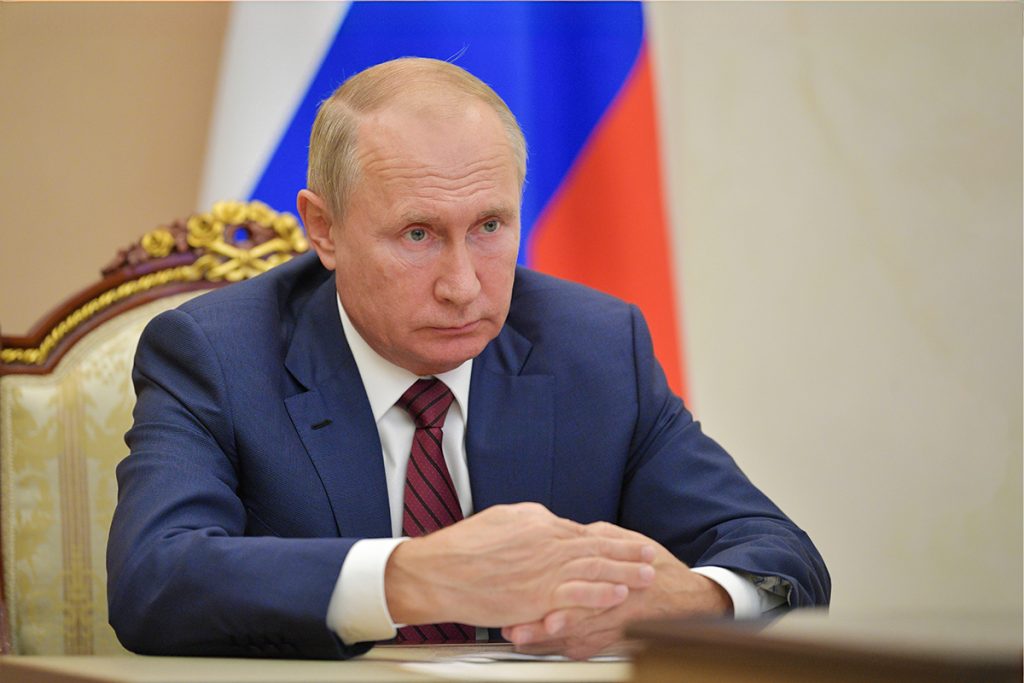Russian President Vladimir Putin has put forward a ceasefire initiative for Ukraine, contingent upon Kyiv withdrawing its troops from territories annexed by Moscow in 2022 and relinquishing its NATO aspirations. Ukrainian officials swiftly dismissed Putin’s proposal as manipulative and impractical.
Putin’s announcement comes amid heightened international diplomatic efforts, with Switzerland preparing to host peace talks and the G7 nations meeting in Italy. Criticizing these diplomatic moves as distractions, Putin emphasized what he views as the true roots of the Ukrainian crisis.
Key conditions of Putin’s ceasefire proposal include Ukraine recognizing Crimea as part of Russia, committing to remain non-nuclear, and scaling back its military capabilities. Putin also demanded the lifting of Western sanctions imposed on Russia.
In response, Ukraine reiterated its stance on reclaiming occupied territories, including Crimea, and holding Russia accountable for alleged war crimes. Ukrainian officials criticized Putin’s proposal as lacking substance and accused Russia of prolonging the conflict.
Western leaders, including NATO Secretary-General Jens Stoltenberg and US Defense Secretary Lloyd Austin, condemned Putin’s demands, affirming their support for Ukraine’s sovereignty and territorial integrity. They stressed that Russia’s actions, particularly its illegal occupation of Ukrainian territory, disqualify it from dictating terms for peace.
Meanwhile, the conflict on the ground persists. Russian forces claim to have intercepted 87 Ukrainian drones in one of the largest incidents of the war, though Ukrainian authorities reported minimal damage or casualties. In retaliation, Ukraine’s air force asserted downing multiple Russian drones and missiles, resulting in civilian injuries and property damage.
The humanitarian impact of the conflict remains severe, highlighted by Russia’s recent return of 254 Ukrainian soldier bodies to Kyiv. Despite these gestures, Ukrainian officials insist on Russia’s full withdrawal from occupied territories and genuine engagement in peace talks.
Facing challenges in ammunition and weaponry due to delays in Western military aid, the Ukrainian military continues to resist Russian advances. Recent clashes, such as those in Donetsk resulting in civilian injuries, underscore the ongoing humanitarian crisis.
Putin’s speech defended Russia’s military actions near Kyiv as efforts to compel Ukrainian leadership into negotiations rather than full-scale occupation. He expressed readiness to discuss returning certain regions to Ukraine, contingent on strategic concessions.
Critics argue Putin’s rhetoric aims to deflect responsibility and stall genuine peace efforts, pointing to Russia’s annexation of Crimea and ongoing military operations in eastern Ukraine as evidence of insincerity.
As diplomatic efforts progress, tensions between Russia and Western nations remain high. The conflict, which escalated into full-scale invasion in February 2022, continues to challenge international efforts to achieve lasting peace.
The days ahead will be crucial as global leaders work to address the crisis, balancing diplomatic negotiations with urgent humanitarian needs. The international community’s response to Putin’s ceasefire proposal is poised to influence efforts to resolve one of Europe’s most pressing security challenges in recent history.


